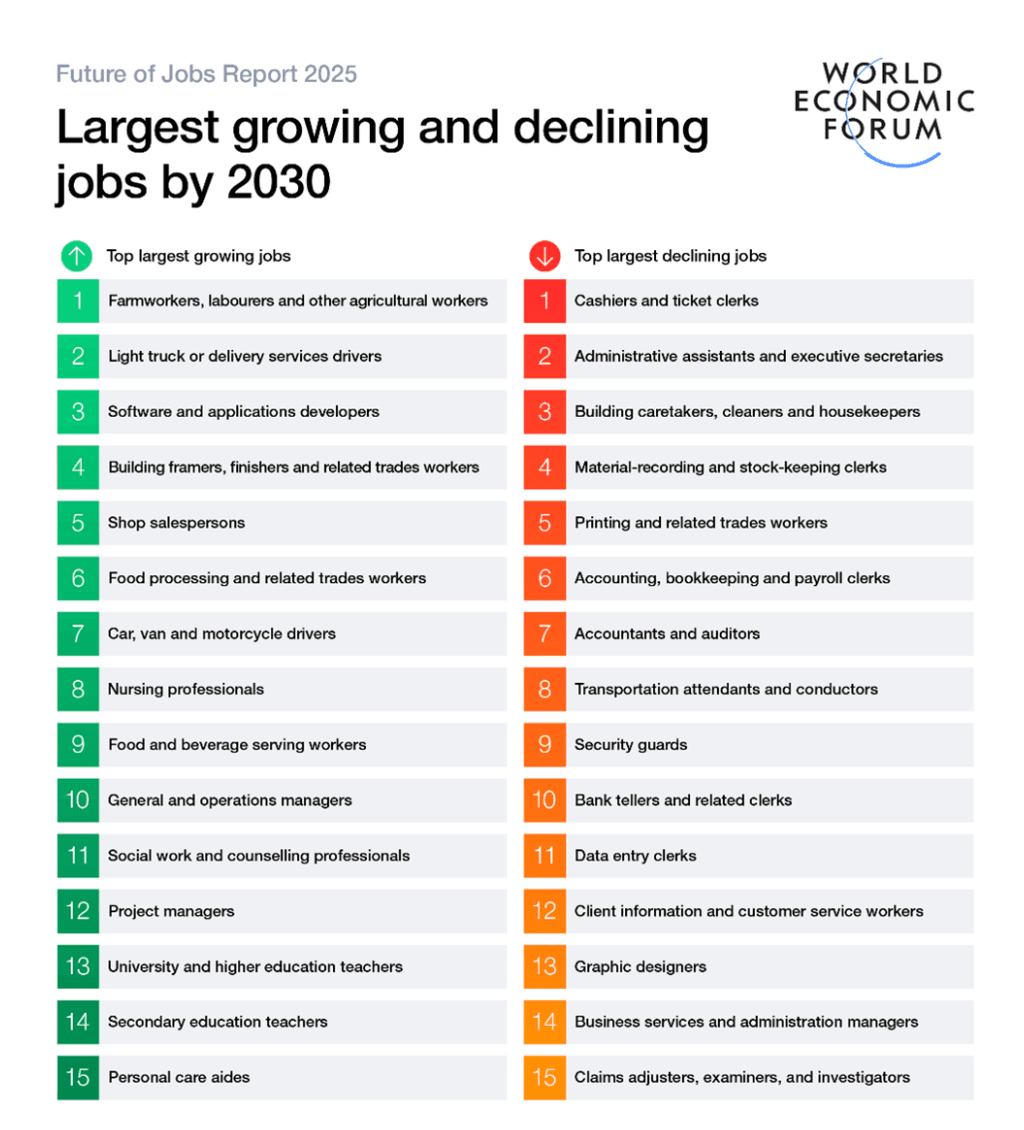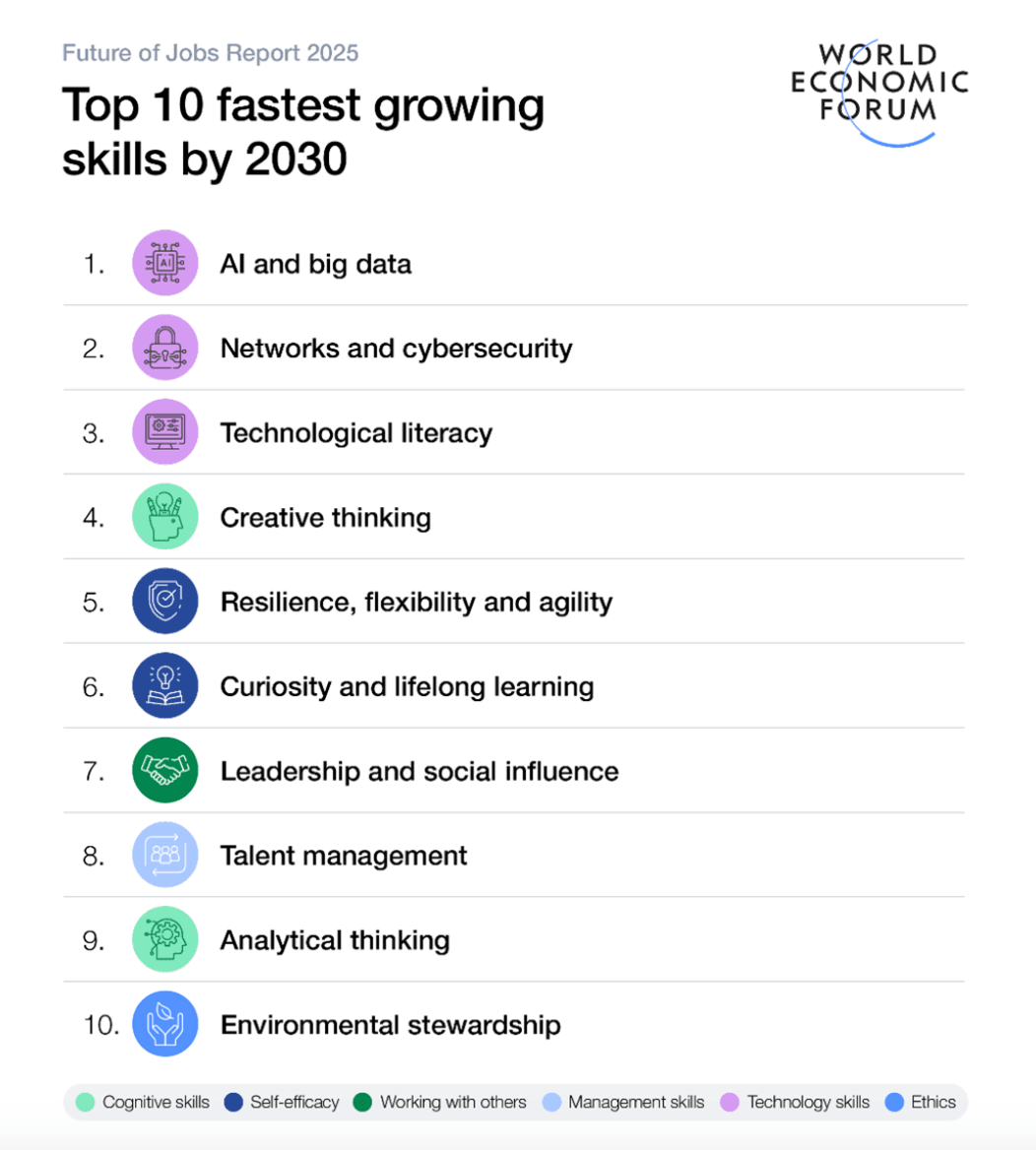Software developers, nurses, and...farmers? These are the jobs of the future, according to a new World Economic Forum (WEF) report that revealed which careers will thrive and which will disappear in the coming years.
Based on the WEF’s "Future of Jobs Report 2025,” released on Wednesday, Jan. 8, it predicts that the job market will look very different in 2030. Some jobs will grow, like those in technology, healthcare, and agriculture. Other jobs will decline, like those in office administration and manufacturing.

The report said that the fastest-growing jobs will be in areas like software development, nursing, and farming.
The report also expects that there will be a need for more teachers at all levels, from secondary education to higher education.
On the other hand, the report predicts that jobs like cashiers, administrative assistants, and accountants will decline as these jobs are more likely to be automated or outsourced.
The report also expects a decline in jobs related to printing and transportation due to automation and AI.
The WEF report also showed the top 10 fastest-growing skills essential for future employment on the back of the changing landscape of industries and the increasing importance of technology.

At the forefront is AI and big data, as organizations integrate artificial intelligence into their operations. Following closely is the need for expertise in networks and cybersecurity.
Technological literacy is also essential, as a strong understanding of emerging technologies enables individuals to navigate the rapidly changing tech environment. Moreover, creative thinking is increasingly valued by employers as a key driver of problem-solving and innovation across various sectors.
In a dynamic work environment, the skills of resilience, flexibility, and agility are vital. Complementing this is the emphasis on curiosity and lifelong learning.
Leadership is another critical area, with leadership and social influence gaining importance as organizations seek to inspire teams and drive change.
Additionally, effective talent management is essential for fostering a productive and engaged workforce.
Lastly, skills in analytical thinking are increasingly sought after. The trend toward environmental stewardship is also on the rise.
Meanwhile, the WEF report projected a net increase of 78 million jobs globally by 2030, fueled by technological advancements and demographic shifts.
The report, which drew on data from over 1,000 companies, revealed that 22 percent of existing jobs will be disrupted by 2030, with 170 million new roles created and 92 million displaced. "
Trends such as generative AI and rapid technological shifts are upending industries and labor markets, creating both unprecedented opportunities and profound risks," said Till Leopold, Head of Work, Wages and Job Creation at the WEF.
Advances in AI and renewable energy are also expected to drive demand for specialist roles in these fields.
The report, however, noted the growing skills gap as a major challenge, with nearly 40 percent of skills required on the job set to change.
"The time is now for businesses and governments to work together, invest in skills and build an equitable and resilient global workforce," Leopold added.
The report highlighted the need for reskilling and upskilling initiatives to address the changing demands of the job market, particularly in areas like AI, big data, and cybersecurity, while also emphasizing the continued importance of human skills like creative thinking and resilience.